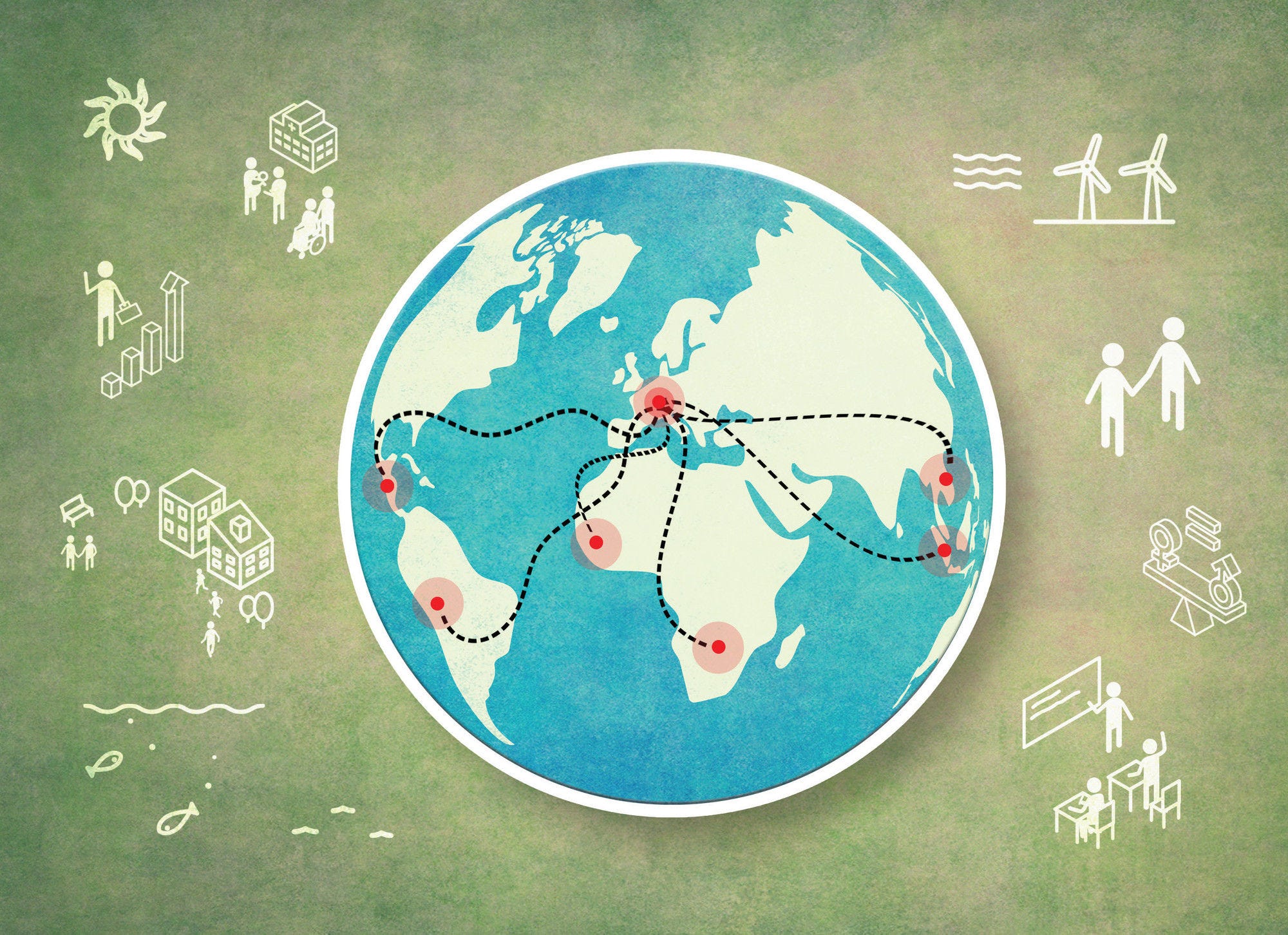Since 2017, the OECD Centre for Entrepreneurship, SMEs, Regions and Cities (CFE) and Development Co-operation Directorate (DCD) have carried out joint work on decentralised development co-operation (DDC) to assess key trends and innovative mechanisms on how cities and regions design, finance, implement and monitor and evaluate their DDC activities with partner countries and have provided specific recommendations on policies, data and reporting, capacity building, multi-level co‑ordination and partnerships (see OECD (2018[1]) and (2019[2])). These reports created an active dialogue between the OECD Regional Development Policy Committee (RDPC), which works extensively on urban and regional development policies with national governments, cities and regions, and the OECD Development Assistance Committee (DAC), which provides a forum for donors to promote development co-operation and other relevant policies to contribute to the implementation of the United Nations (UN) 2030 Agenda for Sustainable Development.
The objective of the project Reshaping Decentralised Development Co-operation in Germany, whose findings are summarised in this report, is to improve the impact of German DDC policies, strategies and programmes, strengthen capacity through peer-to-peer learning, foster the multi-level governance of DDC in Germany and provide a tool to guide and improve DDC globally. The project is carried out jointly by OECD CFE and DCD with the support of the German Federal Ministry for Economic Co-operation and Development (BMZ), the Deutsche Gesellschaft für Entwicklungszusammenarbeit (GIZ) GmbH and the Service Agency Communities in One World (SKEW) by Engagement Global. It analyses the various German DDC modalities and approaches that states and municipalities are using to implement their DDC actions and develops typologies to define the German model for DDC. It provides evidence on how German states and municipalities can use the SDGs as a framework to ensure coherence between external actions (DDC) and internal territorial development policies. Furthermore, the report aims at identifying and analysing financial flows extended by German states and municipalities from the OECD Credit Reporting System (CRS), as well as tools and processes that can improve local data and reporting on DDC. Building on the German experience, the underlying global policy dialogue and the OECD recommendations from previous reports on DDC, the project also delivered a global policy toolkit on how to implement effective DDC policies and programmes, composed of a repository of good practices, successful examples and stories for effective, efficient and inclusive DDC.
The project on German DDC produced the following four key outputs:
This OECD report, which includes a policy assessment, recommendations and an action plan for all levels of government (federal level, state level and municipalities) in Germany on how to increase the effectiveness and impact of DDC policies and programmes.
Knowledge sharing and capacity-building workshops aiming for peer-to-peer learning among German states and municipalities and the frontrunner regions and cities worldwide on DDC.
A Global Policy Toolkit to upscale DDC effectiveness, efficiency and impact worldwide.
International awareness raising and dissemination of the results of the project at global events.

